The world's best enterprise sales organizations use variations of MEDDIC whether it be MEDDIC, MEDDICC, or MEDDPICC.
If you are considering a sales role within a company that uses MEDDIC, this is for you. whether you are a veteran MEDDIC user looking for tips to sharpen your interview process, or if you are brand new to MEDDIC. This post gives advice on how to interview with MEDDIC-based companies. It is not going to teach you MEDDIC itself. For that, you have two options: 1) Buy MEDDICC the book, or 2) purchase our online MEDDPICC Masterclass.
PREFER VIDEO?
Want to hear direct from Andy Whyte, then you may prefer to watch this video. If not, continue reading the article below.
Interviewing at a MEDDIC Company
Over the last few years, I have interviewed hundreds of candidates for Account Executive roles in my teams. Unfortunately (or fortunately, depending on which side you are on), the standard of 'interview craft' by sellers is pretty low.
This post aims to serve as a guide on how to interview with companies that use MEDDIC. By nature, not only will these organizations be more professional and therefore have a higher expectation of standards, but they will also respond positively to the Seller taking control of the interview to lead it towards a favorable outcome for them. Just as they would want a Seller working for them to do with a customer.
With this in mind, a super powerful and easy-to-deploy hack for interviewing with companies that use a methodology like MEDDIC is to use MEDDPICC in the interview process.
Before we break down the Account Executive MEDDPICC interview hack, let's look at a few critical aspects of how a salesperson should approach an interview with a MEDDICC company:
Research
Research the person who is interviewing you. Just as you would a prospective customer before reaching out or meeting them. Specifically research these points:
Mutual connections: If you share a close mutual connection, reach out to this person to reference the interviewer. They may provide you with invaluable advice, and it is super to mention to the person interviewing you that you spoke to a mutual connection as part of your research.
Their Resume: What can you tell about this person from their resume? More importantly, what kind of values do you think the interviewer will hold from their prior experiences?
Their Interests: Often, you can get a great impression about what the interviewer is into from looking at their online profiles. As always, there is a moral line that you shouldn't cross here. Don't be creepy, but if the person is pro-actively promoting their Twitter page and happens to have an interest that you can show genuine interest/conversation in, then be prepared to discuss it if it feels natural.
RESEARCH THE INTERVIEWER
JUST AS YOU WOULD A CUSTOMER YOU WERE GOING TO MEET.
Here you can see my Twitter Bio. It is advertised on my LinkedIn page so it is clear I am open about being visible on Twitter. From this snapshot, you can learn a lot about me.
One thing that baffles me is that in the last 3 months I have interviewed over 30 AE candidates and only a small selection of them mentioned MEDDICC, the book. Despite MEDDPICC being a requirement on the job description.
I either assume they didn't research me, or they don't see the value in aligning their strengths to my requirements 🤷♂️.
SET THE TONE
One thing that genuinely never ceases to amaze me is how many professional salespeople attend interviews and not set the tone. Setting the Tone is where near the beginning of the interview, you set yourself up for success by doing things such as:
Time Check - check that the interviewer has the same amount of time reserved for the interview as you do. Ask if they have a hard stop.
Set the Agenda - You don't have to own the agenda; just be sure to get things you want to discuss out in the open, so time is left to do so.
Generally, to obtain a job offer from a MEDDIC company, you will have to go through multiple interview stages. These stages typically look like this:
-
An initial call with a recruiter (either internal or external)
-
An interview with the hiring manager
-
A second interview with a more senior stakeholder
-
A presentation or panel interview
You will be judged on several elements throughout these stages, but the one factor that will universally win you positive marks is setting the tone for every interview.
I judge each interview with a score out of 10 as well as a rating of:
-
STRONG NO
-
NO
-
YES
-
STRONG YES
I have never scored a candidate better than a soft 'Yes' if they have failed to set the tone in the interview, regardless of how well they did everything else.
The crazy thing is, it is such an easy thing to do. It takes seconds to set yourself up for success and indicate to the interviewer that you are a professional candidate. Here's an example:
"Hey, so thank you for taking the time to talk to me today. Before we get too far into the interview, I just wanted to check that we have 30 minutes to talk today? Do you have a hard stop on the hour?… OK great… So I am sure you have lots of questions for me. Should I start by just giving you a brief introduction about me and my background?"
So, now the basics are out of the way, we can dig into the main theme of this post - Using MEDDPICC to land you your dream job with a MEDDIC company:
METRICS
In MEDDICC, the book, we talk about Metrics 1s and Metrics 2s. In brief, a Metrics 1 (M1) is a Metric raised early in the sales cycle to refer to Metrics we have delivered to other existing customers.
In an interview scenario, you can use M1s to understand what are the Metrics or KPIs that align most closely to their most successful salespeople.
-
Is it the time they spend in discovery?
-
Is it how many stakeholders they bring into the sales process?
-
Is it their success rate at engaging with the Economic Buyer?
Once you have established which Metrics represent successful Sellers, you can describe how you can deliver against those Metrics. This would be the same as shifting to the M2s in a deal. Make the Metrics about you and them.
ECONOMIC BUYER
In MEDDIC, the Economic Buyer is the person with the overall authority in the buying decision. Where we are using MEDDIC for hiring, the Economic Buyer becomes the authority in the 'hiring decision.'
Just like in a deal, the Economic Buyer can vary depending on several variables. In hiring, those variables are likely to be (but not limited to):
The size of the company: In small companies, this could be a founder or the CEO.
The role itself: If it is an individual contributor role, then the Economic Buyer could be the VP of Sales for the region. If it is for a Director of Sales role, then the Economic Buyer could be the CRO.
In an interview process, you need to obtain access to the 'Economic Hirer' just as you would the Economic Buyer in a deal. The best way to do this is via the hiring manager.
The same rules apply when meeting the Economic Hirer as they do the Economic Buyer - talk their language and think about what they will be looking for.
DECISION CRITERIA
This should be an easy one. This is pretty much identical to how you would use the Decision Criteria in your deal.
The only difference between identifying and adapting the Decision Criteria for the hiring process is that the hiring manager will be delighted to dig into the criteria as it will allow them to refine the interview to focus on the criteria and how you match up to them. It is also a superb indication that you are showing the right 'selling signs.'
Just as you would with selling: get the Decision Criteria out in the open as early as possible and work on not only aligning yourself against it but try and lace in some of your strengths to differentiate your value versus other candidates.
As with selling, it is good practice to gain commitment and consensus that you are meeting the Decision Criteria throughout the process.
DECISION PROCESS
Like a deal when you are interviewing, there should be a clear process in which the evaluation is running upon.
If there isn't a well-structured process, then this is a major red flag for you. Not only does this indicate that the organization you are interviewing with may not be organized but, without a clear Decision Process, then it's going to be challenging to run a fair and thorough evaluation process.
Fortunately, most MEDDIC organizations will have a comprehensive interview process that you should uncover early in the process.
Once you have the Decision Process, be sure to triangulate it with every person you speak with and close the interview against it.
Closing at the end of interviews is a common practice. I have never hired a salesperson who didn't close me at the end of their interview. That said, it has become cliche and is no longer the differentiator it once was. Therefore to take it to the next level, use the Decision Criteria and the Decision Process to close the interview. For example:
"Sarah, thank you very much for your time today - I have enjoyed our conversation. You mentioned earlier that you are looking for someone who has the following criteria: X, Y, and Z… I wanted to get your feedback on how you think I align against that criteria?……"
**Positive Feedback**
"…That's great to hear; you mentioned the next step is to meet your manager, who is the VP of Global Sales - would you be able to introduce me to them ahead of the meeting so I can break the ice with them?"
I cannot imagine a scenario where the hiring manager disagrees with this. If they disagree, then I would say you have more convincing to do, and this should act as a red flag to your progress in this process.
PAPER PROCESS
The Paper Process is not such a big thing in the hiring process. My advice here is to use the Paper Process as an opportunity to show good practice and attention to detail.
All roles will require references, so being proactive on this front shows confidence in your track record and a thorough approach.
IMPLICATE THE PAIN
BIG BIG BIG BIG BIG BIG BIG BIG BIG BIG Part of of the hiring process!
Yet also massively overlooked by candidates!
Why are you even being interviewed? There will be a pain! It's likely to be because of three circumstances:
1) The organization is in growth mode and needs more salespeople to cover the growth
2) Someone has been fired
3) Someone has resigned
All three have different pains associated with them, and it's your job to uncover what the pain is and adapt yourself to solving it. Here's a brief guide:
If the organization is in growth mode - They will want someone who can come in and hit the ground running. Demonstrate your ability to onboard and learn quickly.
If someone has been fired - This is a golden opportunity to implicate your predecessor's pain and flip the situation to highlight how you are the person who will solve all of those pains.
If someone has resigned - Firstly, determine if it is a regrettable loss, as often people will 'resign' to avoid being fired, or they've jumped ship because they are not performing. Digging into this is an opportunity to showcase your discovery skills and give yourself the knowledge to align yourself accordingly.
If the resignation is regretted, it will be essential for you to showcase your loyalty and give the impression you won't become a regrettable loss. If the resignation isn't regretted, dig deeper into the reasons just as you would if they were fired.
CHAMPION
No Champion, No Job.
It is as accurate in the hiring process as it is in a deal. Your Champion in the hiring process is most likely to be your hiring manager. If your hiring manager isn't a Champion of yours, then you are in trouble, and it's unlikely you'll be successful in getting the role.
Just like in a deal, you've got to test your Champion. The same rules apply:
-
They have to have power and influence within the organization
-
They should be selling internally on your behalf
-
They should have a vested interest in your success
-
The first criteria should be easy to identify
The second will come down to you to uncover from your Champion. Ask them about conversations they've had about you with other stakeholders, and whether there was any feedback, you should know. Many organizations will use recruiting software to capture feedback, so obtaining this feedback should be easy for you to do.
The third criterion should be a pre-requisite in sales and with a sales manager, but it is still worth digging into this point. What are their goals? Do they want to overachieve against their targets, or do they want to be promoted? Identifying their goals and how you can help them towards them will go far in helping to align you in their mind with their success.
COMPETITION
Remember! Competition is anything that will rival your success, whether it be another person, internal or external, or another initiative that could take the same resource. Let me elaborate:
You are a London-based Seller interviewing for a UK Account Executive role at a Series C SaaS scale-up. The hiring manager is responsible for the EMEA region and currently has one open headcount to fill. In this scenario, most candidates would think their competition is other AE candidates in the process; however, in this case, the EMEA manager is considering these options:
A) Hire a new AE for the UK market
B) Promote an SDR to be an AE for the UK market
C) Hire an AE for a different market within EMEA
If you approach your competition with only option A in mind, you will be opening yourself up to risks to shift the headcount to another region OR invest in the up-and-coming SDR.
To prevent losing to the competition, be sure to dig in deep with thorough discovery, not just for the role but the hiring manager's strategy.
IN CLOSING
Whether you wish to present to the hiring manager that you have been using MEDDPICC in the hiring process comes down to your style, personality, and how you read the situation.
Remember that at its heart MEDDPICC is a methodology that helps you to qualify opportunities. As much as you should use it to help you succeed in your interview processes, don't lose sight of another significant benefit, which is to help you qualify if the role is right for you.



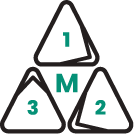
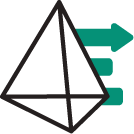
.png)





.png)

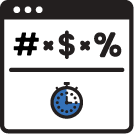

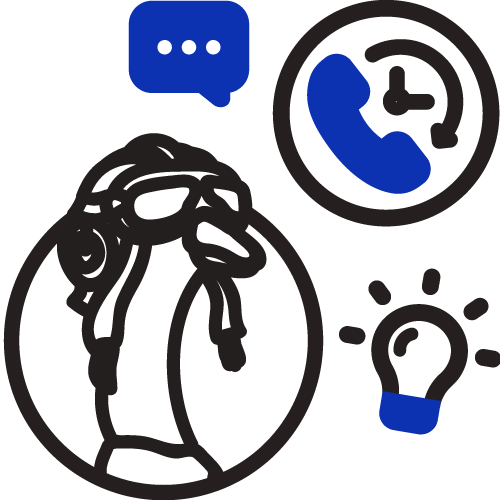


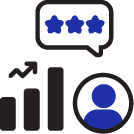



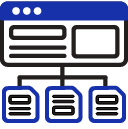

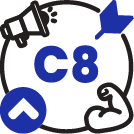






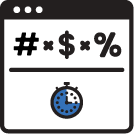

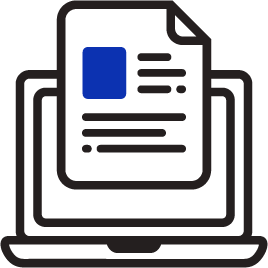



%201.png)








.png)

.png)
.png)

.png)